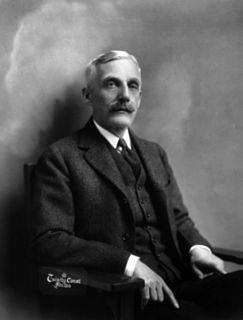A Quote by Laozi
The more prohibitions you have, the less virtuous people will be. Try to make people moral, and you lay the groundwork for vice.
Related Quotes
If a country is governed with tolerance, the people are comfortable and honest. If a country is governed with repression, the people are depressed and crafty. When the will to power is in charge, the higher the ideals, the lower the results. Try to make people happy, and you lay the groundwork for misery. Try to make people moral, and you lay the groundwork for vice. Thus the Master is content to serve as an example and not to impose her will. She is pointed, but doesn't pierce. Straightforward, but supple. Radiant, but easy on the eyes.
What does labor want? We want more schoolhouses and less jails; more books and less arsenals; more learning and less vice; more leisure and less greed; more justice and less revenge; in fact, more of the opportunities to cultivate our better natures, to make manhood more noble, womanhood more beautiful, and childhood more happy and bright.
Taboo restrictions are distinct from religious or moral prohibitions. They are not based upon any divine ordinance, but may be said to impose themselves on their own account. They differ from moral prohibitions in that they fall into no system that declares quite generally that certain abstinences must be observed and gives reasons for that necessity.
It must not be supposed that happiness will demand many or great possessions; for self-sufficiency does not depend on excessive abundance, nor does moral conduct, and it is possible to perform noble deeds even without being ruler of land and sea: one can do virtuous acts with quite moderate resources. This may be clearly observed in experience: private citizens do not seem to be less but more given to doing virtuous actions than princes and potentates. It is sufficient then if moderate resources are forthcoming; for a life of virtuous activity will be essentially a happy life.
There's a lot of people in the Middle East who are desirous to get into the Mitchell process. And - but first things first. The - these terrorist acts and, you know, the responses have got to end in order for us to get the framework - the groundwork - not framework, the groundwork to discuss a framework for peace, to lay the - all right.
As things get worse and the State seems powerless to help, the State will seem less and less legitimate. People will lose their moral connection to it. Laws will seem more like revenue traps and shakedowns. The state will start to seem more like another extortion racket, and, as in Mexico, people will have a harder time telling the good guys from the bad guys.
The fact that only humans above a certain age can be morally virtuous, rather than babies or cats, means that that being moral requires some cognitive ability. If virtue is about desires, it is worth remembering that you can't desire some things without being able to conceive of them. Suppose a virtuous person will desire to make people happy and desire to tell the truth. You can't desire to make people happy without having the concept "happy" and you can't desire to be truthful if you don't have have the concept "lie", so a cat or a baby cannot desire these things.
Liquidate labor, liquidate stocks, liquidate the farmers, liquidate real estate. It will purge the rottenness out of the system. High costs of living and high living will come down. People will work harder, live a more moral life. Values will be adjusted, and enterprising people will pick up from less competent people.
Some persons hold that, while it is proper for the lawgiver to encourage and exhort men to virtue on moral grounds, in the expectation that those who have had a virtuous moral upbringing will respond, yet he is bound to impose chastisement and penalties on the disobedient and ill-conditioned, and to banish the incorrigible out of the state altogether. For (they argue) although the virtuous man, who guides his life by moral ideals, will be obedient to reason, the base, whose desires are fixed on pleasure, must be chastised by pain, like a beast of burden.
When I talk about an "empathy bank," I don't mean literally opening up a bank and putting in deposits. What I mean is that the more we can, as individuals and as members of a community, empathize with, understand the pain and uncertainty economic crisis causes other people, the more we lay the groundwork for political change.
The Youth Employment Fund is helping Ontario's young people build valuable skills and access job opportunities that will lay the groundwork for successful careers. I'm thrilled that more than 10,000 youth of all abilities and backgrounds have already benefited from this important program and I look forward to our impressive team of Employment Ontario partners continuing to work with businesses across the province to help young people build a brighter future for Ontario.





































